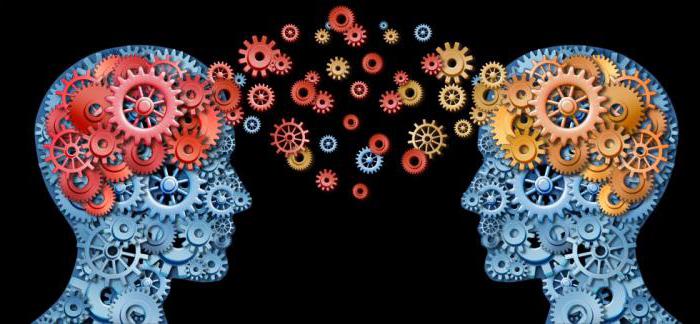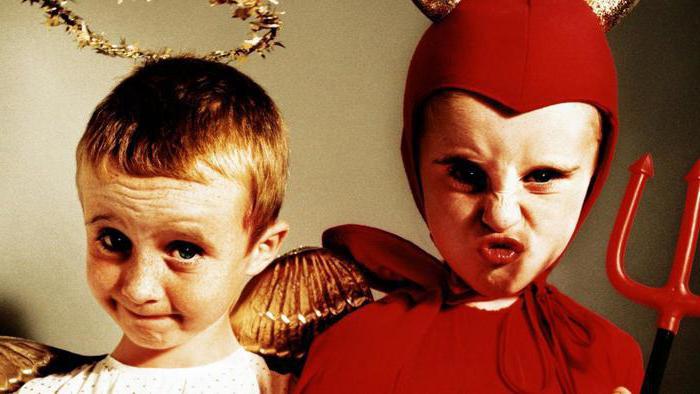Any person has many individual qualities. When in contact with society, people are inherent to show their most pronounced features and properties that characterize them as a person. Character is a combination of stable mental properties of a person, generating an individual manner of behavior in individual living conditions. The formation of character is influenced by many educational parameters acquired in the family, school, and higher education institution. It is directly interconnected with an individual attitude to nature, society and oneself.
At a very young age, a person is guided mainly by temperament, since the personality is not yet formed. Character in psychology has an extremely large number of individual traits. And the number of shades of each of them is unlimited. Take neatness, for example. It has a lot of shades: pedantry, neatness, cleanliness, punctuality, etc. However, some features will always be key, and only on them you can characterize a person. In the period of character formation, a person himself can unconsciously mask or control some of his properties.

Self-education of character
Experts have found that the anatomical and physical predispositions of a person do not affect the formation of personality at all. To say that the process of character formation may depend on appearance, figure, name, birth number, etc., means to recognize the inadmissibility of even small changes. In addition, all development practices deny the assertion of character stability. Such a precedent can occur only in the case of the pathology of the subject.
Self-education of character implies that a person can get rid of excessive self-conceit, is able to critically evaluate himself and comprehend his shortcomings. This will give him the opportunity to reveal in himself those sides that he would like to acquire or, conversely, free himself from the undesirable. Invaluable help in the formation of character is provided by more experienced people. The main thing is to find a worthy good example!
The first attempts at character classification
For the first time, an attempt to scientifically systematize characters was undertaken by the ancient Greek philosopher Plato. It was based on ethical views. The founder of phrenology was the Austrian physician Franz Josef Gall. A science that studies character types was born in the first half of the 19th century. Subsequently, there were many experiments in the classification. Under types are considered the systematization of characters that are sometimes found in people. However, only one type is dominant among them. There are several fundamental types that depend on temperament.

Choleric
Choleric - a person with frequent changes in mood, which gives birth to their frisky nervous system. Such people are easily carried away, but quickly fade away. Unfortunately, energy costs are often wasted in vain. Choleric people tend to do everything quickly, sometimes forgetting about quality. Very often they do not have time to complete what they have begun before they get bored.
Sanguine
Sanguine has a stable nervous system. It is much easier for such a person to let go of their disappointments and failures, being distracted by the external environment. Freely carried away, and works productively. These are interesting and easy people who need a society of supporters.
Phlegmatic person
Phlegmatic is a calm and balanced person. Outwardly, it may seem that it is almost impossible to unbalance or insult him. However, these are quite vulnerable people who can disguise true feelings.Such a person is a wonderful and obligatory performer, but a little slow.
Melancholic
Melancholic is too emotional, sensitive and easily injured type. It is more difficult for him than others to experience injustice. This person is too closed, distrustful and more prone to sadness.

Introvert and extrovert
At the very beginning of the 20th century, the Swiss psychiatrist Carl Gustav Jung composed his own concept of character. It looked as follows. People who become self-reliant are introverts. They are not inclined to communicate and have difficulty contacting with the surrounding society. Extroverts are those people who are open to the whole world. In addition, they are quite energetic and friendly. Carl Jung argued that character is an innate quality. After research, scientists came to a unanimous opinion that it is common for a character to express his personality at a fairly early age. Moreover, throughout his life he never changes.
How to determine the character of the physique?
The German psychologist Ernst Kretschmer proposed a systematization that makes it possible to establish a character according to the anatomical structure and face. The thin type, asthenics, is characterized by him as prone to deep unrest and closed. Overweight person - a picnic. He often faces the problem of overeating, but freely adapts to any conditions and urgently needs to communicate. He ranked people with a practical, calm and purposeful character as an athletic type.
Character accentuation
Surely everyone in his life came across a timid man. He always worries when his environment ignores him, but he does not dare to declare himself. Or a joker who is the soul of the company. This person is very upset if friends have not shown due attention to his ideas. These people worry about what others will think about them, while experiencing an acute lack of approval for them.

Such a demonstration of feelings is called accentuation of character. Its types are extremely similar and fragmentary coincide with the types of psychopathies. Often such a character in psychology develops during formation, and when a person becomes older, softens. In this case, the character traits are inconsistent and manifest themselves in an exceptional environment, and under ordinary circumstances they are barely noticeable. How many characters exist, as many different accentuations.
At what age does character emerge?
Currently, psychology claims that a person’s personality is formed from the moment of his birth. At about 2-3 years, the baby begins the formation and development of character, and it lasts until puberty. At this time, the children are extremely dynamic. They learn with particular interest the surrounding nature, the relationship between people, and begin to draw their own conclusions. Children already have their own personality and are ready to protect it. Often people do not realize that each of us is unique. Character cannot be bad or good!
Is it possible to cultivate an ideal character?
A particularly important factor in the development of the baby becomes concern for his mood, needs and desires. If parents take his personality into account, he will grow up being honest and responsive. In the case when the trust was lost for some reason, the baby grows up with a feeling of emptiness and inconsistency within itself. Unfortunately, many parents often make the same gross mistake. Nurturing in their offspring an “ideal” character, they forget that the opinion of parents may simply not coincide with the age nuances of personal childhood development. Character formation is an extremely difficult process, requiring tremendous trust and insight from them.
Future women and men
Children aged 4-5 years are becoming more balanced and attentive. During this period of development, the child can already control himself.Therefore, serious enough stimuli will be needed to unbalance him. However, it is too early to compare a child with an adult, since he is still extremely vulnerable and needs attention. In Japan, there is an ancient saying: a person’s happiness is dominated by his character. When the personality is established and strengthened, it is unlikely to succeed in changing it. However, it can either be broken or slightly polished, developing the best aspects in it. It is after three years that a person gradually emerges in the child. The future woman is already visible in the girl, and the future man in the boy. It is necessary to reckon with this when building relationships.

Which is stronger: parenting or genes?
Not all parents realize that the intellect and character of a child is created depending on whether they can show responsibility and wisdom in its development. Moreover, many are sure that it is predetermined for the most part not by upbringing, but by inherited genes. In fact, by doing so they are trying to explain children's bad habits and defects in behavior, as well as personal exclusion from the educational process.
Undoubtedly, the temperament obtained by the child together with the genes significantly affects the formation of character. However, the role of society is much more serious. A tremendous impact on the development of a child’s personality in the preschool period is exerted by the actions of parents and loved ones. Often parents are unforgivably mistaken, finding excuse for the inappropriate actions of their child, allowing them to do whatever they please. This is usually due to the fact that he is still very small. But already in childhood, you can have a certain concept of the character of the child and his inclinations.
Parents need to communicate with their children calmly, without letting them feel irritation or fawning in their voice. In this case, the kids quickly realize that you will not achieve anything by tantrum or tears! In order for parents to grow up a respected, decent, and successful person, they must, from an early age, accustom their child to discipline, hard work, and perseverance in achieving goals.

School time
While attending school, a new stage in the formation of the character of the child begins. For the first time he comes across a series of stringent requirements with which he needs to compare his actions. It is difficult for a former preschooler to get used to it, however, new requirements and responsibilities make him a habit of daily work, organization, purposefulness and accuracy.
At the age of 7-10 years, children begin to skillfully mask some properties of their character. This is due to the desire to either harmonize with society or to manipulate it. During puberty, a character is established. Hormonal changes significantly enhance all individual traits, including negative ones. At the time of completion of school time, character formation ends with adaptation to the next stage of life. Psychologists agree that the development process has practically no effect on the formation of personality. This is a completely independent process, which depends on the impact of society.
How to determine the age of character?
However, with the acquisition of life experience, many tend to change attitudes, which significantly affects all types of character. People 30-40 years old still tend to live in the future. And people in their 50s are approaching the line where their reality is directly related to the past and future at the same time. For example, for some dreams are already something secondary, however, nostalgia for bygone days has not yet appeared. When a person reaches 60–70 years, he thinks less about the future than about the present and past. Many are already beginning to feel a lack of strength, so you have to save them. Accordingly, traits inherent in this age appear, such as calm and leisurely.
Basically, only those traits that are due to existing properties can appear and consolidate in a person’s character. If we talk about completely new unexpected changes, then after 30 years they no longer happen. However, situations associated with complex diseases, injuries, as well as life shocks, can significantly affect a person.

Everyone has a chance to change!
People who dream of changing their character can be reassured! Nothing is impossible! Unfortunately, a significant change in personality is not possible. However, do not forget that your personal characteristics of character formation are guaranteed to lead to success if you consciously control your every step. After all, any of us is unique! Man is able to change his character and rise above him!
Therefore, when predicting a person’s actions, one should never forget that they have a certain admissibility and cannot be absolute. Personality is always able to change, challenging the circumstances. But only if she does not hide her helplessness behind the expression "Such is my temper."
It is better to develop your positive traits than to constantly think about your minuses and find out what characters exist. You need to love yourself, and then internal flaws will not bother you. Everyone has them, rest assured! Your goal is to develop and discover the depth of your potential.
